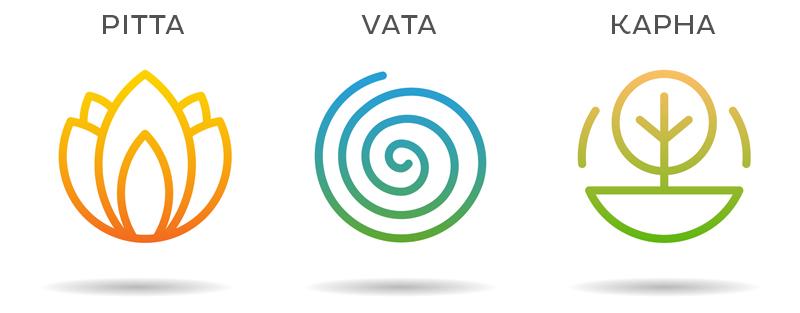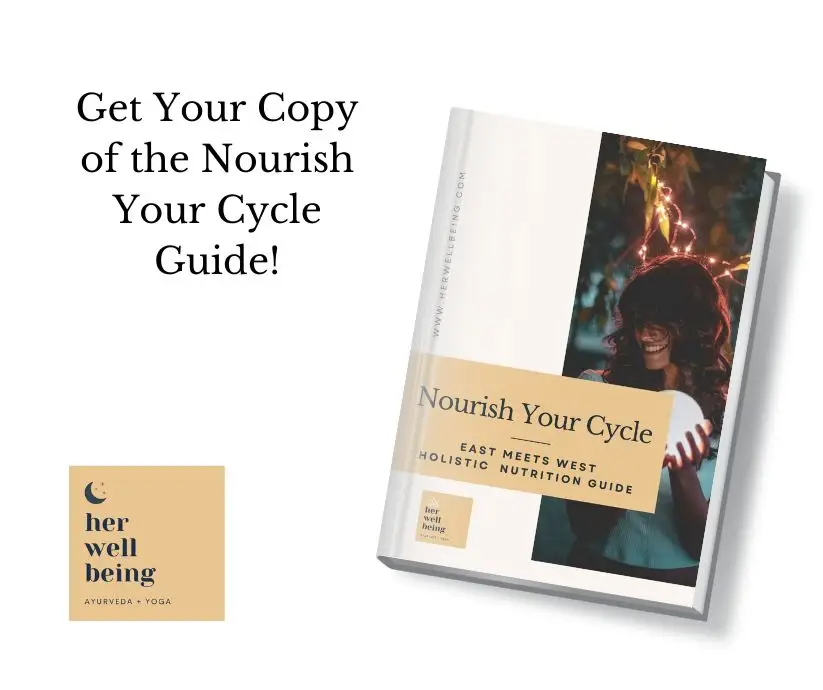Self-care is the practice of looking after our physical, mental, and emotional health. It’s an essential part of maintaining our overall wellness and well-being. When we prioritize our self-care, we are better able to manage stress, feel more energized, and improve our outlook on life. In this blog post, we’ll discuss why self-care matters and I’ll share my top three tips for enhancing your wellness through self-care.
Listen to the full podcast episode here.
What is Self-Care and Why Does It Matter?
Self-care has become such a buzzword; a word that maybe inspires or disgusts. Either way, we now have scientific research that shows us how important it is; how self-care can be health care. Ayurveda has seen self-care in this light for thousands of years. Perhaps it’s the post-pandemic era that we live in now that has turned our attention to the importance of wellness. Could it be that we’re finally figuring out that health and happiness really do go hand in hand? Well, it’s about time.
First, what is self-care? Self-care is taking care of yourself in a way that improves the quality of life overall. These can be small actions or steps that you take over time that supports your health and well-being in different ways. You can be strategic and work on areas of your life that need improvement – or you can just try things that help you feel good.
Self-care can involve many different things, including eating a healthy diet, getting enough sleep, exercising regularly, and practicing mindfulness. It can also include things like taking a warm bath, reading a book, or spending time in nature. In many ways, self-care is about taking a break from the daily grind and giving yourself permission to recharge.
This concept of self-care is deeply ingrained in Ayurveda, a traditional system of medicine from India that focuses on balancing the body and mind. In Ayurveda, self-care practices like yoga and meditation are seen as critical components of overall health and well-being. In fact, Ayurveda is often referred to as “lifestyle medicine,” as it emphasizes the importance of making healthy choices in all aspects of life.
The Mind-Body-Spirit Benefits of Self-care
The benefits of self-care are many. Research has shown that self-care practices can reduce stress, improve mood, increase resilience, and even boost the immune system. In addition, self-care can help us feel more connected to ourselves and others, which can have a profound impact on our overall sense of well-being.
It’s scientifically proven that self-care has the potential to improve many aspects of our lives. Not just our physical health but also our mental and emotional health as well. Ayurveda has always stressed that the body, the mind, and the spirit are interconnected. An unhealthy state of mind doesn’t support health in the body or in the spirit. We’ve learned in these last few years how our spirit really matters in regard to our health. Finding ways to lift our spirits every day is part of self-care, too.
Source: www.mentalhealthfirstaid.com
Creating Your Self-Care Goals
There are lots you can take on when it comes to self-care. Here are a few ideas or “buckets” you might want to consider when narrowing down where you want to place your focus first. Don’t try to take it all on at once! Slow and steady …
- Physical health
- Mental health
- Spiritual health
- Stress Management
- Healthy Work Relationships
- Healthy Relationships w/Family & Friends
- Healthy Relationship with the Environment
- Healthy Social Life
- Acts of Service, Volunteering
These are all good places to start to help you think of your personal self-care goals. You might start with areas of improvement in your life and start brainstorming to get the creative juices flowing. In what areas could you be happier, more satisfied?
Tips for Incorporating Self-care Into Your Life
So how can you incorporate self-care into your life? Here are three tips to get you started:
- Make self-care a priority. This means setting aside time each day, even if it’s just a few minutes, to focus on yourself and your needs.
- Experiment with different self-care practices. Try out yoga, meditation, or journaling to see what resonates with you. There’s no one-size-fits-all approach to self-care, so be open to trying new things.
- Be gentle with yourself. Remember that self-care is a journey, and it’s okay if you don’t have everything figured out right away. Be patient and compassionate with yourself as you navigate this process.
Here are my top tips that everyone can benefit from:
- Prioritize good sleep hygiene
No substitute or magic pill could replace a good, solid night’s sleep. If you get good sleep every night, you’ll have a better mood the next day and have more energy. You’ll resist stress better, will strengthen your immune system. Cortisol, the stress hormone, plays a big role in inflammatory diseases. Sleep is the perfect remedy for our stressful lifestyles. Ayurveda understands that digestion and detoxification work better when we rest well, too. When sleep is compromised, try a Yoga nap! Yoga Nidra is a meditation practice that can help you recharge your batteries. As if you needed an excuse for that mid-afternoon power nap! - Move your body every day
Our bodies are meant to move, not sit for long periods; and unfortunately, that’s what’s happening for most of us every day. Get work done in shorter increments during the day and take more breaks, even if it’s just getting up to stretch your legs or get a water refill. Or, go talk to the person you need to email or go for a stroll when you’re on the phone or in Zoom meetings for long periods. If you want to try Yoga, Ayurveda’s sister science, it’s a great way to improve flexibility, balance, strength, and mental clarity. - Get outside
This is crucial too. There’s a lot of science backing up the fact that our systems function better when we have spent some time outside. You get more Vitamin D, and more oxygen, which are both known mood lifters. You don’t have to go anywhere. Just leave the building! If you’re short on time, try combining #2 and #3 by going for a walk every day. Park your car a little further away from your destination or stop by a local park on the way home. Walking outside is a great way to decompress after a busy, day. Do this without distractions. After work, attend to yourself first before you see your family so you can feel more calm and more grounded. Otherwise, we may bring work stress home with us and we don’t want that. Try taking deep breaths while you’re outside to increase your oxygen intake. - Eat More Whole Foods
I put this last because we can get fixated on food when it comes to wellness. Yes, nutrition is important but it’s not more important than everything we’ve already covered. Ayurveda suggests sticking to a local, seasonal, whole-food diet of primarily plant foods. Include more veggies, greens, and fresh fruit every day. Forget about restrictive diets unless you have severe food allergies. An inclusive diet is best. Just remember to eat mostly whole foods. Keep it fresh and shop the rainbow of fruits and vegetables every week. Don’t get stuck in the same foods year in and year out. Eating a variety of foods, especially plant ones, supports a healthy gut.
Self-Care Is Health Care
In summary, self-care is a critical way that we can improve our overall health and well-being. It is the original health care. By making self-care a priority and experimenting with different practices, we can reduce stress, improve mood, and increase our overall sense of connectedness and happiness. So why not give it a try?
Remember, it is the little things, the little choices that matter at the end of the day. That’s what self-care is, a choice. You can choose to live life to the fullest.
Listen to the full podcast episode here.
Top 10 Daily Habits That Will Change Your Life Inspired by Ayurveda
Sign up here if you would like to buy Heather’s guide for Top 10 Life-Changing Daily Habits. This simple holistic guide features the very best of dietary, herbal, and lifestyle medicine inspired by Ayurveda. You’ll get my top tips plus an invitation to book a 30-minute consultation with me to personalize your tips.
A Life of Balance: Ayurvedic Lifestyle Medicine, An Ayurveda Online Course
If you want to learn more about leading a balanced life with guidance from Ayurveda & Yoga, check out my Life of Balance course. The holistic health system of Ayurveda has expert advice when it comes to self-care and I want to share it with you! You’ll get to sample Ayurveda-inspired self-care practices and herbal products, and new plant-forward recipes with plenty of peer and practitioner support from yours truly. Anyone is welcome to join: whether you’re new to Ayurveda or you’re experienced.
Here’s to your mind-body-spirit health.
Discover the transformative power of Ayurveda for women’s health and wellbeing. Ayurveda offers a holistic approach to enhance women’s well-being by integrating principles of lifestyle, nutrition, herb medicine, yoga, and meditation. Choose an entry way that interests you to get started!
Ayurveda can address the challenges women face in today’s fast-paced world. Ayurveda provides effective solutions to manage stress, maintain good nourishment, and sustain energy levels. Let the time-tested tradition of Ayurveda empower you to cultivate overall well-being and address the unique needs of women’s bodies and minds in the digital age.
Understanding Ayurveda for Women’s Health and Wellbeing
Ayurveda understands that health and wellness is a personal thing. This is not a cookie-cutter approach. Your challenges and needs are unique to your body-mind system, which is decided by the balance of your doshas.

The Three doshas and Your Body-Mind Type
The three main doshas are ruled by different natural bioforces including Air (Vata), Fire (Pitta), and Earth/Water (Kapha). Your constitution is based on the predominant dosha in your body-mind system. Since everyone has a different combination of doshas, this makes your wellness journey as unique as you are.
For example, if you have predominantly Air energy, you’re a Vata body-mind type. If you tend to be fiery, you may be a Pitta type.
Not sure? Get my Self-Discovery Guide below to find out.
What’s my dosha and body-type? Do I have imbalances?
Get the Self-Discovery Guide
Find out in our Self-Discovery Guide.
Imbalanced doshas mark the onset of disease.
It’s helpful to know that any of your doshas can become imbalanced. This can happen when we let go of healthy routines and foods. Like the holidays! When this happens, we can start to notice mild symptoms that come and go like indigestion, insomnia, and irritability. This is a good sign that something’s up and your mind-body system is asking for balance.
You can correct course by returning to routines and foods that are most supportive of the dosha that is unhappy. For example, when we eat in a rush this may give us indigestion. Eating on the go introduces more air energy into our digestion. That aggravates the Vata dosha. When we return to regular, more relaxed meals again we may feel better. Vata has been satiated. For now. Make sense?
Ayurvedic Nutrition for Women
Ayurveda nutrition for women’s health and wellbeing is all about embracing a holistic approach to food. It’s about finding nourishing foods that not only provide sustenance but also support focus, energy, and mood throughout the day and throughout the month. In addition to choosing the right foods, practicing mindful eating is crucial as it helps us develop a deeper connection with our bodies and nourish ourselves regularly.
Ayurvedic diet is a personal journey meaning that based on the state of your doshas (balanced or imbalanced), you may need foods that are balancing to that particular dosha. Ayurveda also teaches us to make seasonal changes to our food so we’re not eating the same thing all the time. Our needs change along with the changes in our environment. For example, we tend to eat more cooling fruit and salads in the Summer and more warming, comforting foods in the Winter. You’re probably already doing this!
The Best Foods for Women’s Health and Wellness
If there’s anything that Ayurveda has taught us is that wholesome nutrition is timeless. In other words, Grandma was right. Eat your greens. Eat whole grains. Eat warm meals. Don’t eat foods with mystery ingredients, etc.
Ayurveda believes back to the basics is best. You can’t go wrong with unprocessed, whole foods. For a well-rounded diet, try to get the real deal as often as possible and include foods from each food group every day. Yes, it can be that simple! Ayurveda also favors cooked food because it’s warm, nourishing and easier to digest. Try to eat something cooked every day. Add a cup of soup to your meal whenever you can.
An inclusive diet of whole (unprocessed) foods, healthy protein sources, healthy fats and so on are all good ideas for women. Maybe more importantly, try to avoid processed foods including flours and sugars because they do very little for us nutrition-wise which means we won’t get long-lasting energy.
Why Timing Matters in Women’s Holistic Nutrition
The biggest difference for women’s nutrition is timing, especially menstruating women because we lose a lot of nutrients around our period. Due to that, there is a nutrition cycle that better suits a woman’s body and mind during her reproductive years.
This means you favor some foods during one phase of the menstrual cycle and other foods during other phases. These foods support hormone balance (which is a misnomer because women’s hormones are always changing!). This can be life-changing for women who suffer from PMS and painful, heavy periods including those in perimenopause.
You really can eat your way to a more peaceful period!
Get Our Free Guide Nourish Your Cycle and Transform Your Period Woes by Food Choices

Discover holistic nutrition for the menstrual cycle.
sign up here
Download our free Nourish Your Cycle Guide.
Ayurveda also says that the foods you need the most are based on a combo of the balance of your doshas and the current season. Remember that Ayurvedic nutrition is personal and so what works best for your bestie may not be great for you. Everyone has their own special needs based on the energetic makeup of their body-type and imbalances they might have going on.
A Word About Dieting and The Ayurvedic Diet

Women have suffered from the diet industry for long enough. I mean, really suffered! Women need MORE nourishment NOT less. MORE real food and LESS processed stuff. Restrictive diets are generally for those with food allergies and sensitivities. Otherwise, women should enjoy a wide range of whole foods as long as they digest them well and they get good focus and energy in return.
The Best Ayurvedic Herbs for Women’s Health and Wellness
Let me start by saying that there isn’t a “silver bullet” Ayurvedic herb for women. Remember, your unique body-type/constitution? Yep, I would suggest herbs that support your special balance of the doshas that addresses imbalances, too.
Whenever I talk about herbs, I like to do a consultation first because your needs can be very specific. It also depends on the season. However, if there are a handful of herbs that I tend to refer to again and again. That is a whole blog post unto itself. More on that coming soon!
East and West Herbs: Better Together for Women’s Health
I also like to take an East-West approach to both diet and herbs and may combine Nettle with Shatavari and Dandelion with Ginger. Combining Eastern and Western herbs is something I like to do because they complement each other so well.
Please talk to an experienced herbalist first before you start taking herbs. Don’t forget to consult with your doctor especially if you’re on medications that might react with herbs. Your doctors need to know everything you’re taking whether it’s OTC, prescribed or self-prescribed so they can look for interactions.
You can set up a Free 20-minute Discovery Call with me to ask me general questions about taking herbs.
Managing Stress for Women’s Health and Wellness

For women, managing stress may be just as crucial as maintaining a healthy diet. Adopting daily habits that reduce stress isn’t merely advisable in our digital era; it’s essential for staying energized and avoiding illness.
In today’s faced-paced environment, we’re constantly releasing stress hormones, which heightens the risk of developing chronic inflammatory diseases. Stress management is a priority for women in today’s high-stress culture.
For women, who often shoulder the majority of responsibilities in managing work, home, and family, it’s crucial to prioritize health and self-care routines. Understanding that time is limited, it’s essential to find moments for self-care whenever possible.
Here are five lifestyle essentials that can assist women in feeling more relaxed and less overwhelmed.
- Move your body every day for 20-30 minutes (break it up between AM/PM) in a way that’s enjoyable for you. Walk more, take the steps, park further away from your destination, etc.
- Drink a glass of water before you drink anything else in the morning. You might like a cup of warm water with ginger or lemon on cool mornings.
- Take a break at some point in your day to unplug and relax even if it’s just for 5 minutes.
- Go outside every day to get some air and Vitamin D from the sun.
- Have a wind-down routine like pjs, sleepy tea, reading, etc.
- Turn off screens an hour before bed whenever you can.
- Go to bed by 10 PM
Yoga and Meditation for Women’s Health and Wellness
Yoga and meditation are fantastic additions to a woman’s health regimen. Yoga boosts mood-enhancing hormones and maintains both physical and mental fitness. Meditation strengthens the mind in the face of everyday stressors.
Studies show that meditation can do the following:
- Reduce stress
- Manage anxiety
- Manage depression
- Lowers blood pressure
- Promotes emotional health
- Improves focus and memory
- Increases self-awareness
- Regulates mood
- Improves sleep
Meditation is something you can’t do wrong, even as a beginner. Start with brief sessions focusing on body and breath awareness. Attune to your senses and environment. Such simple exercises enhance awareness, a key aspect of meditation. It’s not about silencing the mind, which is an impossible task. Instead, cultivating self-awareness and mindfulness of your surroundings is an excellent starting point—and remember, breathing is important too!
If you want to start a meditation practice, I suggest choosing a meditation app and listening to guided meditations. Listening is an easy way to start. Just sit back and relax.
- I love the Balance meditation app because it has so many options to fit into my schedule like short, guided meditations for waking up, an afternoon nap, a midday refresh, a walk, a bedtime stretch, or soothing music to lull me to sleep. The options are endless! You can even get your partner and kids involved in meditation, too. And, no they are not paying me to say so!
- I also love the Insight mediation app because it’s free and there are so many guided meditations to choose from. Plus, you can listen to my guided meditations there as well!
Sign up for my Women’s Meditation Group on the Insight app.
Ayurveda Courses for All Stages of a Woman’s Life from Reproductive Years to Menopause

Choose an online course that suits your needs and transform your lifestyle into one that supports your health and wellness goals. Why not start today? There’s no time like the present!
In Her Balance course is designed to assist women in harnessing the power of holistic nutrition, herbal medicine, and lifestyle medicine to naturally balance their energy and hormones via gut health, including my top yoga and meditation tips.
The Graceful Menopause course does the same for women who are entering perimenopause so they can experience a smooth transition into menopause.
Enrolling in any of our courses provides you with:
- 6-8 weeks of educational and motivational guidance with instructional videos.
- PDF guides featuring dietary, herbal, and lifestyle protocols featuring my unique East-West approach.
- Webinars to review the main principles and practices.
- Private, secure online client portal (HIPPA compliant)
- Invites to live webinars and events including the Women’s Full Moon Circle
- Option for all online clients to enhance their learning experience through a private telehealth consultation with me, available at an extra charge.
Discover the empowering feeling when you take charge of your health and wellness journey. Receive content in a simple, understandable format to avoid stress and overwhelm – you don’t need more of that!
Let Ayurveda empower you to address the challenges women face, in all stages of life, and cultivate overall well-being from the inside out. All you need is to choose a place to begin. Peruse our many online courses and programs to find the best place to start.
Keep in mind that Her Well Being’s online courses are not intended to replace medical advice. Please consult your doctor before making changes to your health regime or medications.
Take a look at our online Ayurveda courses for women here!
Online Courses Page
If you need help deciding, schedule a Free Discovery Call with Heather to talk about your options.
We look forward to hearing from you!
It’s easier than you think to incorporate Ayurvedic principles into your daily routine to experience the profound impact on your overall health, managing hormonal imbalances, enhancing fertility, and promoting optimum health well into our golden years.
Combine Online Courses and Private Ayurvedic Consultation for a Personalized Experience with a Qualified Ayurvedic Practitioner
Customize your wellness plan through a combination of online learning and private consultation with Heather’s years of expertise with women’s wellness issues and unlock your innate capacity for balance and well-being. You can get started with this article and then decide where you want to go!
Be well,



Heather R. Burkart
Certified Ayurvedic Practitioner
Founder, Her Well Being Ayurveda & Yoga
Please be advised that the content on this website is for education and information purposes only and does not replace advice from a medical professional.




0 Comments